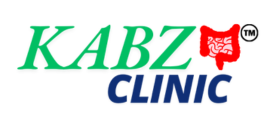Food Allergies or Intolerances: Certain foods can trigger constipation in some people
The Ultimate Guide to Food Allergies

What is Food Allergies or Intolerances ?
While food allergies and intolerances can sometimes contribute to constipation, it’s important to note that they’re not the only possible causes. Other factors like dehydration, medication, and underlying medical conditions can also play a role.
what are the symptoms of Food Allergies or Intolerances ?
· Constipation: Difficulty passing stools or infrequent bowel movements.
· Bloating: A feeling of fullness or discomfort in the abdomen.
· Gas: Excessive flatulence.
· Abdominal pain: Cramping or discomfort in the stomach.
· Other symptoms: In severe cases, food allergies can cause more serious reactions like hives, swelling, or difficulty breathing.
who can suffer from Food Allergies or Intolerances ?
Anyone can develop food allergies or intolerances. However, some individuals may be at a higher risk, such as:
- Children: Children are more likely to develop food allergies during infancy or early childhood.
- Individuals with a family history of allergies: If you have a family member with allergies, you may be more susceptible.
- Individuals with other health conditions: Certain health conditions, like eczema or asthma, may increase the risk of food allergies.
What are the types of Food Allergies or Intolerances ?
There are many different foods that can cause allergies or intolerances. Some common culprits include:
- Dairy: Milk, cheese, and yogurt
- Eggs: Chicken eggs
- Gluten: Found in wheat, barley, and rye
- Nuts: Peanuts, tree nuts (almonds, walnuts, etc.)
- Seafood: Shellfish, fish
- Soy: Soybeans and soy products
Which diagnostic tests are available for Food Allergies or Intolerances
· Skin prick test: A small amount of the suspected allergen is pricked onto the skin to test for a reaction.
· Blood test: Measures the level of antibodies to specific allergens in the blood.
· Food challenge: Gradually introducing the suspected allergen under medical supervision to see if a reaction occurs.
What is the treatment of Food Allergies or Intolerances ?
The primary treatment for food allergies and intolerances is to avoid the offending food. If you suspect a food allergy or intolerance, consult with a healthcare professional to discuss appropriate testing and management strategies.
Which diet I should take, if any ?
If you have a confirmed food allergy or intolerance, you’ll need to eliminate the offending food from your diet. A registered dietitian can help you create a balanced and nutritious meal plan.
Which speciality of the doctor will treat Food Allergies or Intolerances?
An allergist is a healthcare professional who specializes in diagnosing and treating allergies, including food allergies.
Is Food Allergies or Intolerances completely curable ?
While there’s no cure for food allergies or intolerances, avoiding the offending food can effectively manage symptoms. In some cases, children may outgrow food allergies, but this is not always the case.





